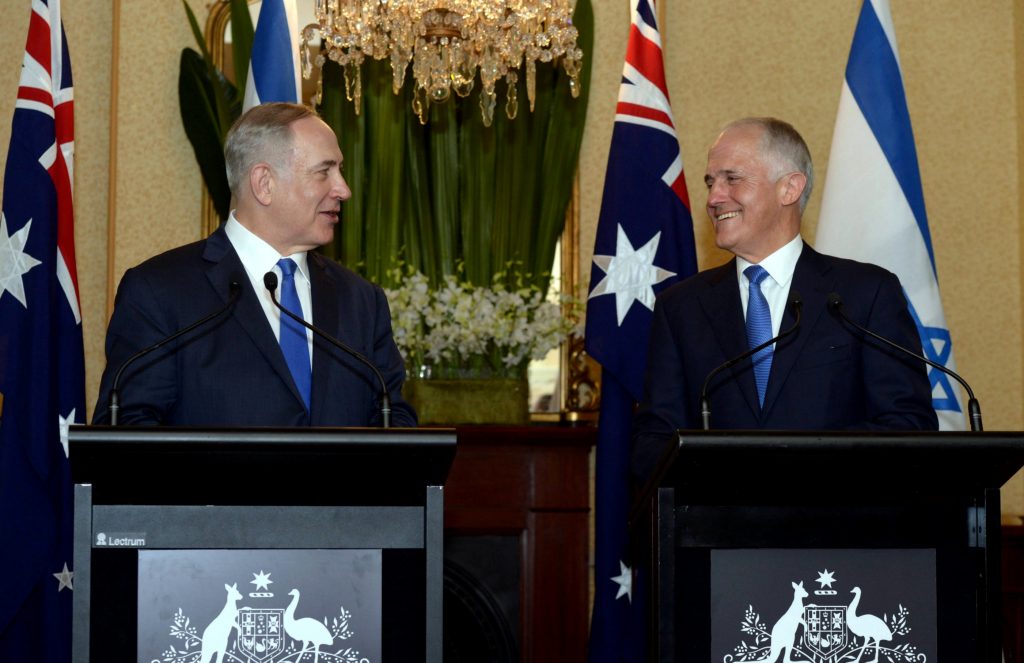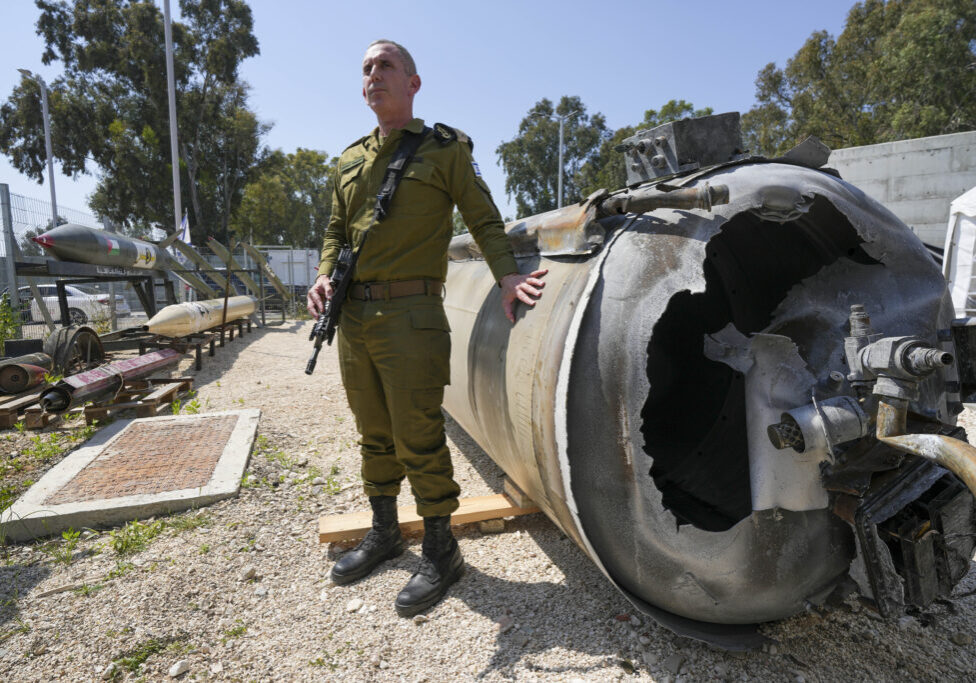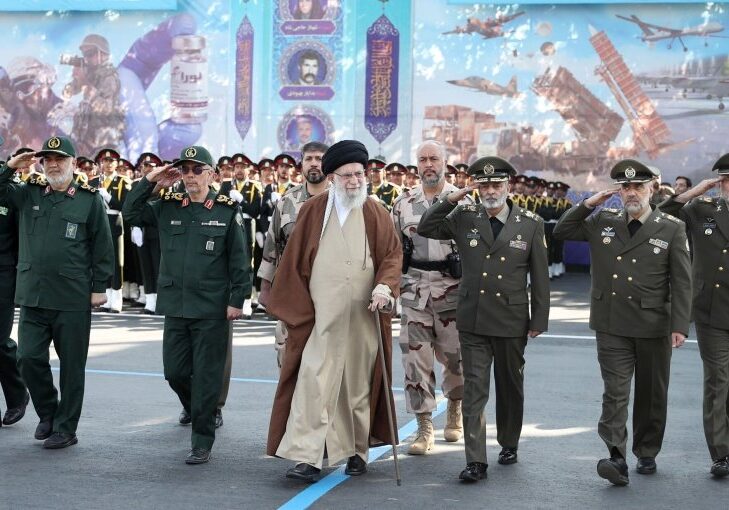Australia/Israel Review
A relationship 70 years young
May 2, 2018 | Naomi Levin

Naomi Levin
All relationships require work. Relationships are bound to fail when partners cease to communicate, when partners take each other for granted, or when they refuse to move on after a grievance.
The relationship between two young, geographically distant, geopolitically different and historically divergent countries – Australia and Israel – has been the result of constant work, effort and perseverance.
Overall, this unique relationship has been one of shared values and the result of the strongest of links at political, diplomatic and community levels.
The past 10 years has thrown up some challenges. But the relationship continues to bear fruit in diverse areas: Israeli start-ups are increasingly listing on the Australian Stock Exchange and using Australia as a gateway to new markets in Asia, and in recent weeks, Australian diplomats stood up to the United Nations Human Rights Council’s institutionalised bias against Israel during Australia’s first meeting as a newly elected member of the body.
Links between the two countries predate modern Israel’s establishment. This was evident at last year’s Be’er Sheva commemoration where thousands of Australians – from war history buffs to the Prime Minister – travelled to Israel to commemorate the centenary of the Australian Light Horse Brigade’s World War I victory over the Ottoman army near Be’er Sheva in the Negev desert in 1917.
Thirty years later, following the horrors of yet another world war, Australians once again featured heavily in Israel’s contemporary history.
The role of then Australian Minister for External Affairs H. V. Evatt in guiding the establishment of the modern state of Israel through the UN has been well documented.
Polish diplomat Dr Julius Katz-Suchy, a contemporary of Dr Evatt, said of the Australian: “Now that’s a great man for you … without him the Israelis would never have got in. He bullied, pleaded, cajoled, coaxed until he got the right numbers for them.”
Many writers and scholars have tracked the Australia-Israel relations over the watershed Menzies, Whitlam, Fraser, Hawke and Howard prime ministerships.
The Suez Campaign of 1956 brought an otherwise lukewarm Robert Menzies closer to Israel, as it became clear that Great Britain and Israel – with France – were collaborating to prevent the Egyptians from nationalising the Suez Canal.
Under Gough Whitlam, the relationship between Australia and Israel cooled as Whitlam’s self-described policy of “even-handedness and neutrality” revealed itself through Australian voting on anti-Israel UN resolutions and a failure to condemn Egypt and Syria for initiating the Yom Kippur War in 1973. As Australian Jewish leader Isi Leibler wrote at the time: “Is it ‘even-handed’ not to distinguish between self-defence and aggression as Mr Whitlam has failed to do?”
The Fraser years, 1975-83, restored friendly relations.
Bob Hawke, prime minister from 1983-1991, showed affectionate support for Israel during his days as a trade union leader.
Following his election as prime minister, Australia was a consistent friend, albeit a friend with questions. Hawke and then Israeli president Chaim Herzog paid friendly visits to each other’s country and Australian joint-communication bases provided vital intelligence that protected Israel during the First Gulf War. However, under Hawke, Australia also permitted Australian diplomats to establish ties with PLO representatives and was increasingly critical of Israeli military action, including in the First Intifada.
Another watershed era in the history of Israel-Australia ties began with the election of John Howard in 1996. Following his 11-year term, Howard was publicly lauded as one of Israel’s closest friends and received six major acclamations from Zionist organisations in Israel, the United States and Australia.
Under Howard, Australia and Israel moved closer than ever. At the United Nations, Australia lobbied for Israel’s inclusion into the important Western European and Others Group (WEOG), which ended Israel’s systematic isolation at the world body, while Howard’s foreign minister Alexander Downer revised Australia’s voting in the UN General Assembly to unequivocally call out the one-sided resolutions that unfailingly condemned Israel, but left other parties blameless. Trade, business and intelligence cooperation between Australia and Israel also expanded markedly under Howard.
While in many respects, ties have continued to blossom across a number of fields, there have been some trials to navigate during the past 10 years.
In March 2008, on the occasion of Israel’s 60th anniversary, then-Prime Minister Kevin Rudd and then-Opposition Leader Brendan Nelson stood together in Australia’s Parliament. In a sign of the ongoing bipartisan strength of Australia-Israel ties, Rudd moved and Nelson seconded a motion celebrating Israel’s achievements and praising the strengths of the bilateral relationship. This momentous event was witnessed by Jewish community leaders and Israeli diplomats.
The relationship was shaken two years later, but survived. Following a tip-off from officials in Dubai and further investigation by the Australian Federal Police and ASIO, the Australian government confirmed Israeli intelligence agents had used Australian passports during a counter-terrorism mission in Dubai.
In early 2010, Australia’s foreign minister Stephen Smith expressed the Rudd government’s sentiments when he said: “This is not what we expect from a nation with whom we have had such a close, friendly and supportive relationship.”
The Australian government also expelled a diplomat from Israel’s embassy in Canberra following the revelations – a move that was seen by many commentators as an over-reaction.
However, as Mr Smith said at the time, “our expectation is that our relationship with Israel can and will continue in a mutually productive and beneficial manner.”
Fortunately for both nations, that was the case and under Rudd and then Prime Minister Julia Gillard, relations quickly resumed course in a positive direction.
Then, in 2013, the ABC reported that a Melbourne-born man Ben Zygier – also referred to as “Prisoner X” – had died in undisclosed circumstances in an Israeli prison in 2010.
The death of Zygier, who had worked for Israeli intelligence services, was the subject of feverish media discussion about how much the Australian government knew, when it was told and who exactly was told.
As commentary in the Australia/Israel Review at the time remarked: “Anti-Israeli elements in Australia, supported by sections of the media, tried to exploit the situation to besmirch Israel’s image … this affair has undoubtedly created negative ripples against Israel among the public.”
Yet both Australian and Israeli officials treated this matter with the discretion it deserved and the relationship remained intact.
Australia’s foreign minister at the time of the Zygier revelations was Bob Carr; perhaps the individual who in recent times has tried hardest to undermine Australia-Israel ties.
Gillard revealed in her memoirs that when it came to determining how Australia would vote on Israel-related resolutions at the UN, Carr accused her of placing more value on the advice she received from the Jewish community than from him, her foreign minister. Gillard replied: “I was no one’s captive. I simply did not agree with him.”
Carr’s influence was thankfully limited by Gillard’s principled approach. Carr, also a former long-time NSW premier, has gone into his second period of retirement from electoral politics with an ongoing, highly critical focus on Israel (see back page for the latest example).
Under the Coalition governments of Tony Abbott and Malcolm Turnbull, Israel has blossomed into a central bilateral partner.
This was clearest during the 2017 visit of Israeli Prime Minister Binyamin Netanyahu to Australia – the first time a sitting Israeli PM had travelled to Australia – and Turnbull’s trip, the same year, to Israel to commemorate the Be’er Sheva centenary. These visits built upon shared values and interests highlighted by the success of Australia’s start-up “Landing Pad” in Tel Aviv in its push for dramatically expanded collaboration and cooperation between the two countries in research, development, education and academia, and underlined an explicit government policy of trying to emulate Israel’s unique success in high-tech entrepreneurship and start-up culture.
Julie Bishop, Foreign Minister under both Abbott and Turnbull, cemented the bipartisan policy that building closer ties with Israel is in Australia’s national interest in her Foreign Policy White Paper, writing: “Israel is also an important partner for Australia, with our bilateral ties underpinned by people-to-people links… Australia will continue to advocate a two-state solution as the only viable path to peace.”
More recently, following lobbying at the highest levels from Turnbull, other senior Australian politicians and Jewish community leaders, Israeli police re-arrested former Jewish school principal Malka Leifer and prepared her for extradition hearings to face 74 counts of child sexual abuse charges stemming from her time in Melbourne. This represented a real success for both the alleged victims and for the ability of Israeli and Australian authorities to work together towards a shared positive outcome.
In April, as Israel marked the 70th anniversary of its independence, Australians celebrated.
Prime Minister Turnbull, Opposition Leader Bill Shorten and a number of state leaders all delivered genuine messages of support on the occasion. They promoted their own efforts to build trade and people-to-people links with the Jewish State – a further concrete recognition that ties with Israel are an important national interest.
The relationship of Australia and Israel continues to strengthen as a result of the work, perseverance and efforts of so many individuals – both prominent and behind the scenes – in both countries over more than seven decades.
But to borrow a phrase from Israeli Prime Minister Netanyahu’s 70th anniversary message, there is every reason to hope the relationship “is just getting started.”
Tags: Australasia, Australia






